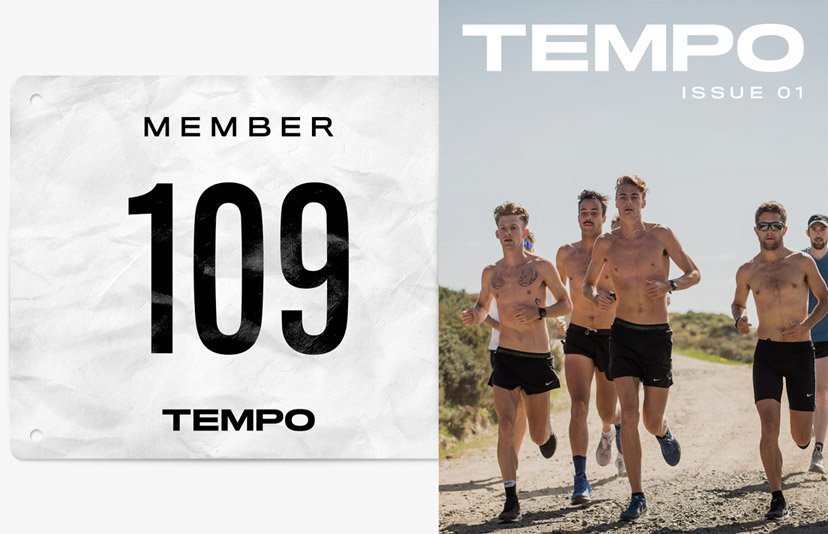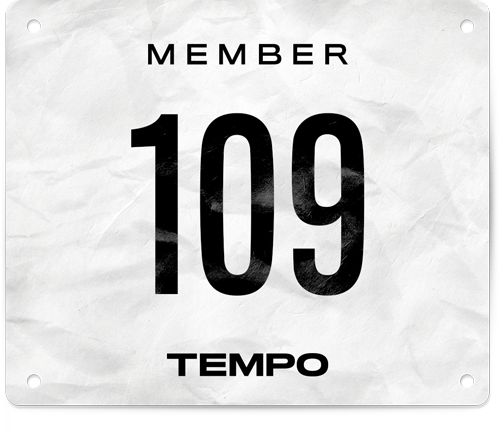Lifestyle
Smashing the glass ceiling
Girls Gotta Run are creating generational change
I first heard about Girls Gotta Run Foundation (GGRF) from New York photographer Jason Suarez. I knew Jason had been in Ethiopia at the start of 2018, and when he told me he intended to raise funds for GGRF on his road to the New York Marathon, it made me sit up and take notice.
"I was inspired to raise funds for GGRF after seeing first hand the struggles of young female athletes in Bekoji.
GGRF helps them become better athletes but more importantly sets them up for brighter futures."
Jason Suarez
GGRF is a charity aimed at improving the lives of girls and women in Ethiopia, a country that is still one of the poorest in the world, and a society where women, especially in rural areas, haven’t always had the same opportunities as males.
But if you think GGRF is just another faceless charity rattling tins on city street corners, think again. While of course GGRF has a huge need to raise funds and put that money to work through providing food and other critical supplies, its core purpose goes beyond that.
I met with Kayla Nolan, the Executive Director for GGRF, in the small, rural town of Bekoji, 200km south of Addis Ababa. Bekoji is famous in running circles for the high concentration of world class athletes who come from here. Far from being an elite training centre, life in Bekoji is harsh. Many homes have no running water or electricity, levels of education are incredibly low, and beliefs and cultural norms haven’t shifted at the same pace of more progressive societies.
Kayla explains how the role of GGRF has changed over the years.
“We’ve evolved our style of programming over time. We began as an organisation working with athletes who were focused on professional athletics careers, and trying to help girls move into athletics as a viable career and source of income.
Then over time we realised we were having a lot of success in helping girls in other ways. We were helping them avoid early marriage, stay in school, find community through sport, so the last few years we really dialled in on the ways that we were successful.”
As Kayla and I sit trackside in Bekoji while the girls train, it’s hard to imagine they face pressure around early marriage. They’re only children at this age, but in a couple of short years many of them will be in the same predicament their mothers were in. Or they would be, without GGRF.
“The average age of early marriage in Bekoji is 14, so we work with girls a little bit before and after they’re at risk of early marriage, which is when most girls drop out of school and become socially isolated. We’ve been able to help girls stay in school, avoid early marriage, find community through sport, and gain valuable life skills.
It’s so important that we have community leaders that we’re able to work with to identify girls who are at risk.”
The key to making this generational change in Bekoji is the structure of the program from GGRF. Still rooted in athletics - the language of Bekoji and much of Ethiopia, the sport provides a gateway to becoming more rounded, educated, community leaders.
“Since we’re a small organisation we decided to invest our funding where it was leveraging the greatest change. So we started our GGRF Athletics Scholarship Program. It has the 4 components of programming that address the challenges that girls face through adolescence.
We do running, education, life skills (monthly modules on things like leadership, HIV/Aids, healthy relationships, and more), and finally we implemented a Mothers Savings and Entrepreneurship Group so that our program is more sustainable for the future. Through this, moms are able to become more financially literate, invest in their own small businesses and ultimately in their families future.
Kayla took me to visit the Mother's Shop, a permanent store front at the Bekoji Market. The Bekoji Market is only open on Tuesday and Saturday; it’s very much a utilitarian market where residents will spend all of their weekly money on supplies to keep their families fed until the next market. For stallholders, the market being open only two days a week creates anxiety and uncertainty. If the weather is bad, or for whatever reason they don’t sell as much as they need to, their children could be going hungry.
Through the Mothers Savings and Entrepreneurship Group, GGRF helped the group get a grant to pay for a permanent site; a permanent structure that can be open 7 days per week (the majority of market stalls are little more than blankets on the ground).
"We are excited to see the Mother’s Shop open for business in Bekoji. The mothers in the GGRF Savings Group came together as a group and decided to invest in themselves by opening a shop where they could sell their homemade goods everyday of the week and increase their collective income. They take shifts operating the shop, often while watching their younger children at the same time."
"We are excited to see the GGRF mothers work to together to create the most effective solutions to the challenges they face individually and collectively.
This is what the GGRF Mother’s Savings and Entrepreneurship Program is all about – financial resilience and independence."
Kayla Nolan
When we joined the girls at training on Bekoji’s famous dirt track, I see more than thirty enthusiastic girls working through a session under the watchful eye of Coach Fatia, Bekoji’s first ever female coach. In a society where poverty is everywhere, running can be a luxury. Shoes and clothes can be hard to come by; everyone relies on hand-me-downs, and even being able to afford food to refuel after a hard workout is no guarantee for a lot of these girls.
This is where the Athletics Scholarship Program is so important. “For $600 you can sponsor a girl and her mom in our program for a year. This provides school lunches, full academic scholarship, the running program, athletic gear, snacks after practice, race entries, the life skills program, all of those things. It also provides funding for the mom to be able to do more; mothers can get grants for growing their businesses, buy goats, and more.”
Finally, GGRF is continuing to change the way people see athletics in Bekoji. In January 2019 GGRF are putting on the first ever ultra relay, running from the Bale Mountains to Bekoji, a 100 mile event for girls in the program, and foreign athletes. In total, 30 runners will share the load over the distance, the girls getting to experience something new in their own country, and the foreign athletes getting a greater perspective on what it’s like to live and train in Ethiopia.
“Our girls have never been to the Bale Mountains, so it will be a really big adventure for them. Ultra running and relays aren’t really a thing here, so it has been fun working on something new.“
If you want to know more about the ultra relay, the Athletics Scholarship Program, or anything else around Girls Gotta Run, please hit this link to learn more and make a contribution.


